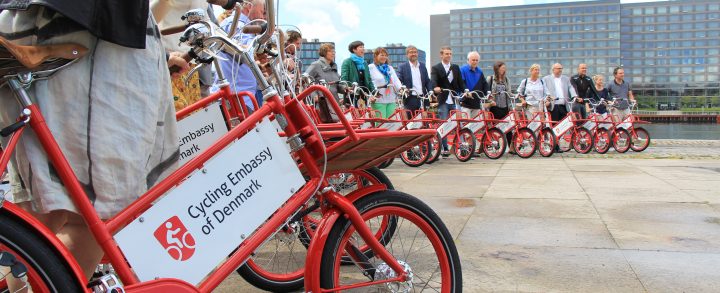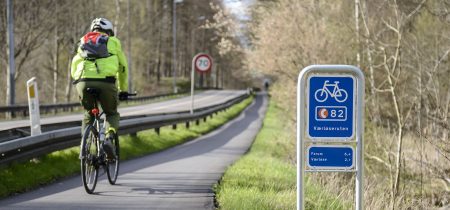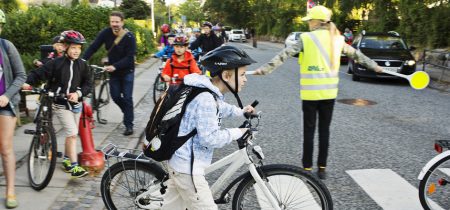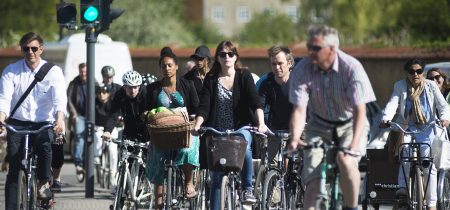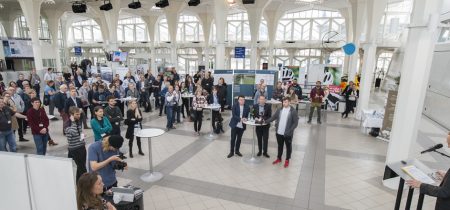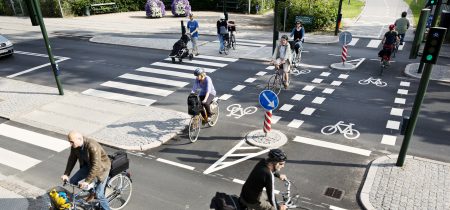The Cycling Embassy of Denmark
The Cycling Embassy of Denmark (CED) is a comprehensive network of private companies, local authorities and other organizations in the field of cycling. It makes sense to pool resources when the players are relatively small and there are very few of them compared to the rest of the world.
By Klaus Bondam, Danish Cyclists’ Federation
The vision of the Cycling Embassy of Denmark is that Denmark should be the world’s leading cycling country and the expert of choice when it comes to knowledge, dialogue and innovation in the field of cycling.
The aim of the Cycling Embassy is to encourage cycling both in Denmark and the rest of the world, and the association’s members work together to develop and market Denmark as a cycling country. This is done by knowledge sharing, communications, and development of the country’s cycling culture and cycling solutions in a unique cooperative network of private enterprises, local authorities and other organizations.
The Cycling Embassy specifically contributes the following:
- It ensures a platform for the creation of networks, knowledge- sharing, and the exchange of ideas among different types of actors in the field of cycling in Denmark.
- It makes Danish cycling knowhow easily accessible to Danes and non-Danes.
- It supports events at Danish embassies and representatives abroad.
- It holds masterclasses for traffic planners and decision makers.
- It provides professional handling of visitors, professional delegations and press inquiries.
Founding the Cycling Embassy of Denmark
Interest in everyday cycling has been slowly but surely on the rise over the past 10-15 years. This has put added pressure on Denmark, and also Holland, where the share of bicycle traffic is high, too.
Every year journalists, urban planners, architects, students, and politicians flock to Denmark to find out why the share of bicycle traffic is so high here. Danish embassies and representatives abroad are also showing increasing interest in marketing Denmark as a cycling country.
At the same time various Danish players in the field of cycling, public as well as private, expressed the desire for closer cooperation to ensure the continued development of Denmark as a cycling country.
In response to this double challenge a number of Danish players in the field of cycling launched a new network in 2009 and called it the Cycling Embassy of Denmark. The network saw the light of day at the European Velo-city cycling conference in Brussels. Since then the Cycling Embassy has arranged meetings, knowledge sharing, discussions, study trips and active participation in a number of national and international contexts.
There were 37 members in 2018 including 9 local authorities, 19 private enterprises (consultant and production), and other types of organizations such as DSB, the Danish bicycle dealers association, and Danish Cyclists’ Federation.
The Leadership Award
Every year since the year 2009 the Cycling Embassy has given the Leadership Award to a person or organization that has set an example in the field of cycling promotion. The first recipient was Michael Bloomberg, the then mayor of New York, for his engagement in the development of the city’s cycling culture.
Over the past three years the award has gone to:
- 2018: Carlos Felip Pardo from the organization Despacio, who for 15 years has worked to promote cycling in the Colombian city of Bogotá as well as a number of other cities all over the world.
- 2017: Oslo Municipality for its ambitious and well- funded cycling strategy, which includes a car free city center.
2016: Phillip Crist from the OECD International Transport Forum for his life- long dedication to the cause of cycling.
The Cycling Embassy’s 9 recommendations
In 2018 the Cycling Embassy’s members agreed to draw up and disseminate 9 simple recommendations for making cycling an integral part of urban mobility. See:
How the Cycling Embassy is organized
The Cycling Embassy is headed by an elected board and has a formal structure with articles of association, dues, and a work plan. However, the network is in principle open to everyone who lives up to the requirements of the articles of association. One of the requirements is to be actively engaged in the work. Nothing gets done except by the members’ own initiatives, including giving talks and setting up stands at relevant international conferences.
The Danish Cyclists’ Federation secretariat handles the Cycling Embassy’s day- to- day secretariat function, draws up agendas and minutes, and has a coordinating role in relation to the many activities. The secretariat also ensures professional handling of the many international inquiries.
There are three annual general meetings for all members, and the board holds an additional 3-4 annual meetings. In addition, an annual study trip is arranged for the Embassy’s members. The Cycling Embassy has taken upon itself to develop and publish the Collection of Cycle Concepts, originally in a printed version but now on-line.
The members take turns hosting the meetings, and can also contribute to the agenda. Members pay dues which are primarily used to fund the secretariat. In addition they invest the amount of time and money they deem fit.
Read more on the website: www.cycling-embassy.org


